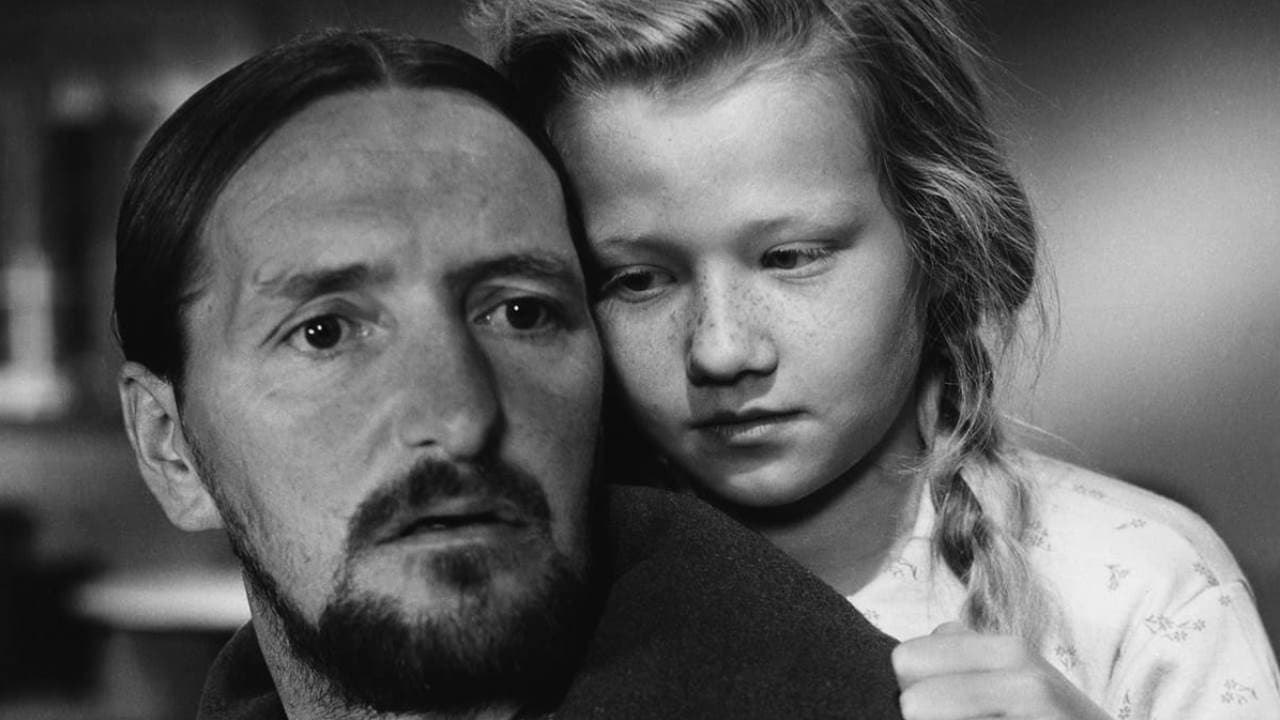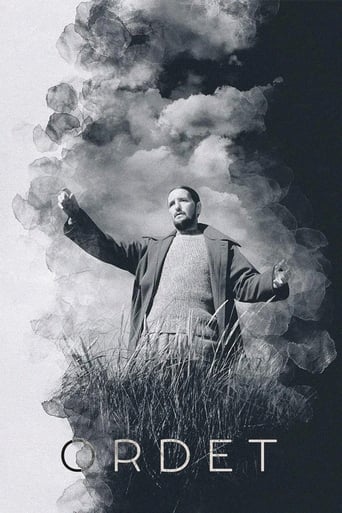

Another winner from Dreyer but i expected as much since i think every film i've seen by him is pretty much a masterpiece that's taking into consideration The Passion of Joan of Arc (1928), Vampyr (1932), Day of Wrath (1943), his final film Gertrud (1964) and now Ordet completes the string of 5 brilliant films he made from 1928- 1964 before dying at the age of 79 in 1968 he was one of the the few geniuses who wasn't given much time to make films, only 13 features in his career from as early as 1919 he was there right from the start and left with such a deep note on what can be done in cinema, that he has inspired generations to come with his meticulous detail for showing reality but in a very unusual manner What is to be said about a story where one character believes he's the reincarnation of Jesus, yet the family think he's crazy in the early 1900s where religion ruled & love was broken cause the fathers of the 2 families have different religious practices where an atheist and his pregnant wife hopes for a boy but problems arise & all the families faith will be tested, and ultimately set the path for this very unusual and unsettling adaptation of a popular Danish play If you haven't seen any Dreyer, you haven't experienced one of the masters of cinema who created a world & atmosphere like no other http://samuellbronko.tumblr.com/post/119845549042/ordet-aka-the- word-1955-carl-theodor-dreyer
... View MoreCarl T. Dreyer is considered by most critics a great movie director. This movie was classified by a panel of critics as one of the one hundred best movies of all times. In fact you don't need to be religious or believer to feel the intense and overwhelming spirituality that emanates from its images, scenes and dialogues. The religious sometimes in conflict with the humane but ending by integrating itself in the latter to an extent of faith and love that succeeds in resuscitating a woman who had died during childbirth. And before that final sequence we have the conflict between agnosticism and belief and between a fundamentalist sect and the orthodox doctrine.This is all shown with great mastery in terms of acting, actors' leading and movie direction. The atmosphere of this movie rivets us in an overwhelming way. From beginning till end it keeps us attached to our seats almost without being able to move. It's not indeed needed to be a believer to realize that we are in presence of a good movie.
... View More***I see a couple of idiots don't like the review. Maybe it's because I misspelled Kierkergaard (corrected). Or maybe they just don't like what they can't comprehend.***I love Pauline Kael. As a film critic, she was the greatest. About Ordet, she said:"Some of us may find it difficult to accept the holy-madman protagonist (driven insane by too close study of Kierkegaard!), and even more difficult to accept Dreyer's use of the protagonist's home as a stage for numerous entrances and exits, and altogether impossible to get involved in the factionalist strife between bright, happy Christianity and dark, gloomy Christianity -- represented as they are by people sitting around drinking vast quantities of coffee."Yes, you could read it that way, if you were a cynic. But that begs the question of the film. (Anyway, they weren't drinking that much coffee.)The question for the current audience was the same for the audience of Kaj Munk's time: Are you going to "face reality" -- the reality of the New Order of the Nazis, or in Dreyer's 1955, the reality of materialism -- or are you going to reach beyond yourself, despite all the evidence, embracing even folly? (Erasmus was asking this centuries ago.)The lesson of Dreyer was the lesson of Kierkegaard. Whether your world view is bright or gloomy, stuff happens anyway. What matters is how you confront it, with faith or despair. I think Munk's and Dreyer's challenge still confronts us in the 21st century.As for Dreyer's success in getting the message across, at first I braced myself for a dour lecture. But I was surprised to find uplifting characters and even humor. Like all Dreyer's films, Ordet is mannered and stylized. But think of Eisenstein. Think of Bergman.Speaking of Bergman, I rather compare Ordet to The Virgin Spring. Both confront grief and end with a miracle.
... View MoreThis is a good movie to watch yet not considerably one of the best, among masterpieces, it lacks some dramatic tension but is certainly one of the best movies about faith.Actually this movie shakes once more the old way of living like a believer but not totally believing, like a "half believer". Talk to a normal guy nowadays about the action of this movie and he'll laugh, talk to someone about miracles and will mock you. That's why this movie is so great because it brings right in front of you one of the most difficult topics in a Christian's faith: miracles. And most of us like to mention only as existed once a man who did miracles, to consider the power of faith as being in the past and kept within the time of biblical story, not as a truly, really fact that still exists. This movie is about discovering the true faith and living by faith.
... View More